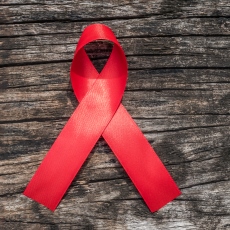RIGHTS BASED REPORTING, THE FUTURE OF SCIENCE JOURNALISM
Scientific Journalism is a challenging niche but it is a rewarding public health strategy in curbing diseases and infections. While it may look like journalists are just doing their jobs, their choice of what goes in and stays out of the news may be fueling huge fires of stigma and human rights violations in communities all over the North West Region.
Health workers take The Nightingale Pledge to remain confidential with patients' information. Nange Nain did not know how important this pledge would be to her till 2019 when she was diagnosed with HIV and sacked the following year from her job because a nurse shared her HIV status with her colleague. The news quickly spread in her close knit community so Nain did not succeed in making a livelihood out of selling food. "They called it HIV food when they thought I wasn't listening. They look at me with so much disgust in their faces. The story gets worst with how the media makes it look. There are always reports about prevention and little or nothing about management. They make us look like monsters that people need protection from. I tell you there is no way in which the stigma from being infected with HIV has not broken me.
Nain is one among thousands of Cameroonians at the receiving end of a stigma partly fueled by scientific reporting that is void of human rights. This manifests in journalism that does not grow access, availability, acceptability and quality of health care. Nchamncham Esther is of the opinion that the media focuses on statistics and fails in ensuring the right to health by not exposing the challenges of HIV/AIDS and Tuberculosis patients living in the rural areas wiith little or no access to medication and fully surrounded by discrimination.
It has not been all bad. In an interview, James Fru revealed the publicity Scientific Journalists have been giving to HIV and Tuberculosis has replaced a significant amount of misinformation about these ailments and resulted in better socialisation.
Tubercolosis Bacteria.
An education /support program grounded in human rights for health workers has been proposed as a solution by various scientific studies and in addition, the United Nations Human Rights Commission is recommending a focus on social determinants of health such as social community, context and built environment. While they may vary between societies, they yield common results such as social exclusion, discrimination and marginalisation, suicide and more. This may curb the 2017 statistics of 3.7% HIV-AIDS prevalence (Cameroon Population Based HIV Impact Assessment better know as CAMPHIA and 17.7% of Tuberculosis according to the World Health Organisation,2022 statistics.
The German Agency for International Cooperation, fondly known as GIZ and Association Journaliste Cameroun Prosante have been granting training to Cameroonian journalists in the science niche with special attention to HIV-AIDS and Tuberculosis. It offers direction on information sources and guidance in doing extensive research for the purpose of a comprehensive report. The aim is getting journalists to promote access to health care for all and to ground their reporting in human rights as a step towards ensuring health for all, nationally and globally.
